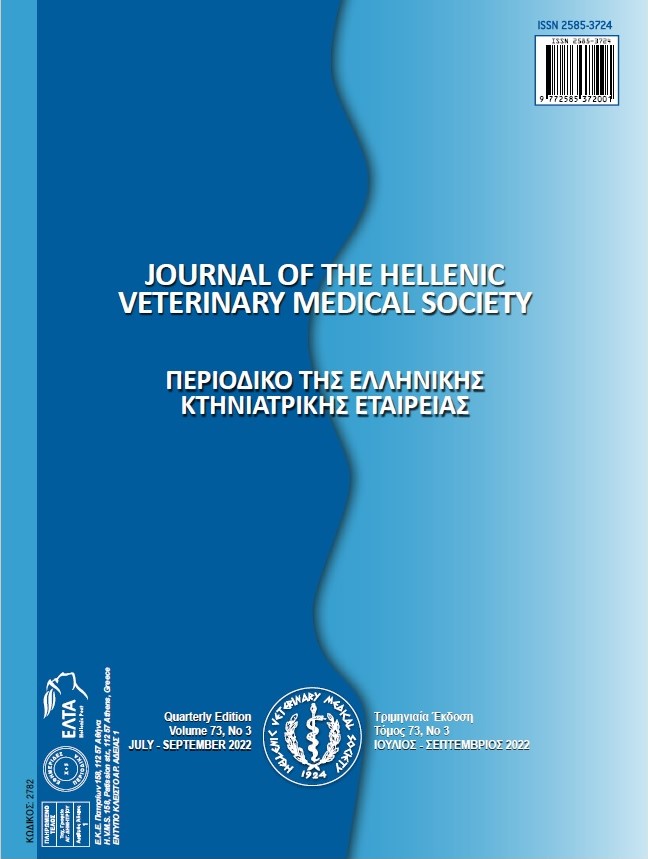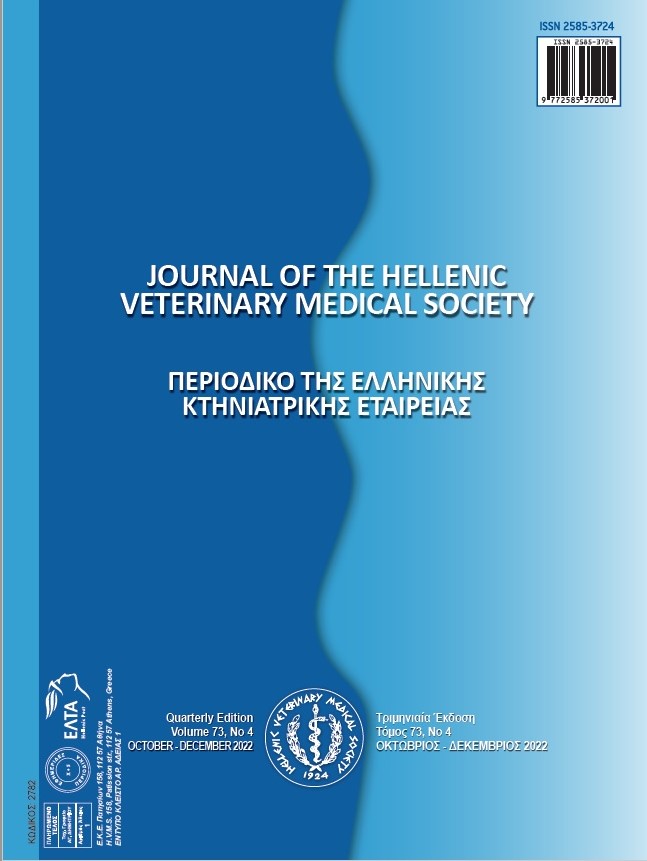Molecular diagnosis of peste des petits ruminants virus (PPR) in goats and sheep populations

Abstract
Peste des petits ruminants (PPR) is an economically important viral disease of goats and sheep. The disease is confused clinically with other infections such as the mild strain of rinderpest in small ruminants. Effective control measures for PPR need that a proper and rapid diagnostic technique of disease. Therefore, the use of reverse transcriptase-polymerase chain reaction (RT-PCR) to detect suspected field samples collected from diseased goats and sheep in Dammam city, Kingdom of Saudia Arabia (KSA) has helped to give an effective diagnosis that was needed to control measure of the spread of the disease. This assay is based on the rapid purification of RNA on glass beads followed by the reverse transcription-polymerase chain reaction (RT-PCR). The primers (NP3/NP4) were used to amplify specifically a fragment of about 350 bp, that technique has a more specific and sensitive method for rapid diagnosis of disease.
Key words: Peste des petits ruminants virus; reverse transcriptase polymerase chain reaction; diagnosis; goats; sheep
Article Details
- How to Cite
-
Abdel-Rady, A. (2022). Molecular diagnosis of peste des petits ruminants virus (PPR) in goats and sheep populations. Journal of the Hellenic Veterinary Medical Society, 73(3), 4627–4632. https://doi.org/10.12681/jhvms.28142
- Issue
- Vol. 73 No. 3 (2022)
- Section
- Research Articles

This work is licensed under a Creative Commons Attribution-NonCommercial 4.0 International License.
Authors who publish with this journal agree to the following terms:
· Authors retain copyright and grant the journal right of first publication with the work simultaneously licensed under a Creative Commons Attribution Non-Commercial License that allows others to share the work with an acknowledgement of the work's authorship and initial publication in this journal.
· Authors are able to enter into separate, additional contractual arrangements for the non-exclusive distribution of the journal's published version of the work (e.g. post it to an institutional repository or publish it in a book), with an acknowledgement of its initial publication in this journal.
· Authors are permitted and encouraged to post their work online (preferably in institutional repositories or on their website) prior to and during the submission process, as it can lead to productive exchanges, as well as earlier and greater citation of published work.



